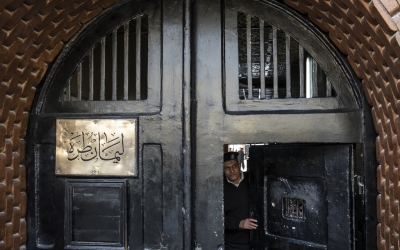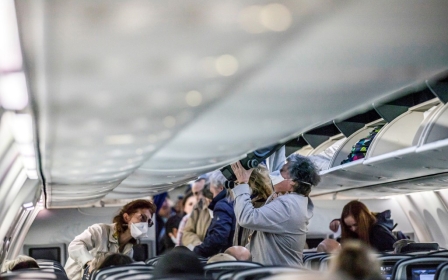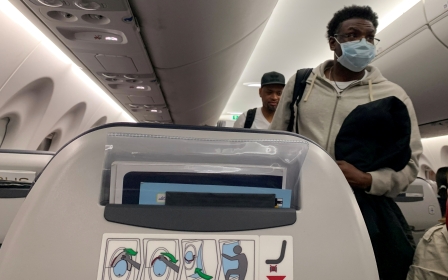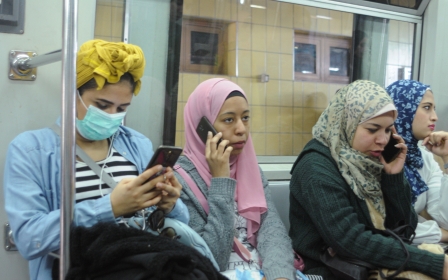Coronavirus: Egypt quarantines 300 families in Delta village after two deaths
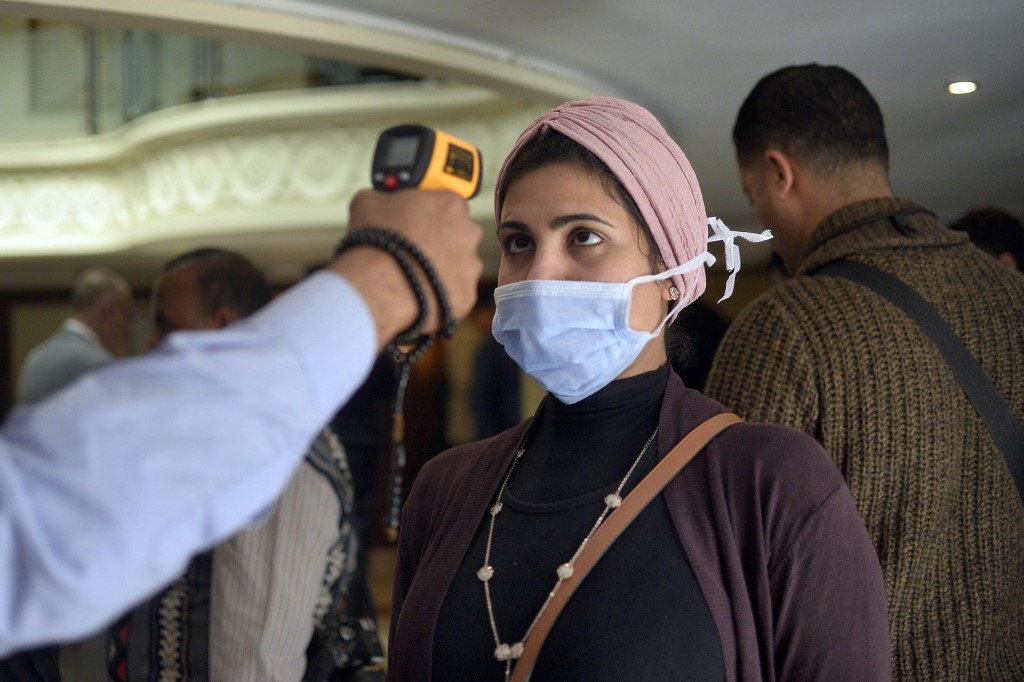
Egypt has quarantined 300 families in a village in the Nile Delta governorate of Dakahliya after two people from the area died of coronavirus, officials confirmed.
Deputy Health Minister Saad Mekki said that 300 households in one village in the town of Belkas had been put under quarantine and would be tested for the virus.
“We have asked the families to stay at home, and anyone who shows symptoms will be transferred to an isolation facility until test results are known,” he told the online news website Masrawy on Tuesday.
Mekki’s statement comes after the health ministry said on Monday that a 50-year-old Egyptian man had died after coming into contact with a 72-year-old woman, who succumbed from COVID-19 last week, hailing from the same Dakahliya village now under quarantine.
Health Minister Hala Zayed told a television interview that some 300 families had been put under quarantine in a Delta village, about 150 kilometres (90 miles) north of Cairo.
New MEE newsletter: Jerusalem Dispatch
Sign up to get the latest insights and analysis on Israel-Palestine, alongside Turkey Unpacked and other MEE newsletters
She said “cleansing procedures” were being undertaken to prevent further infections, and that other “touristic” governorates would also be shut down in the coming days.
On Tuesday Egypt raised its total number of confirmed infections to 166, after 40 new cases were reported, including 35 Egyptians and five foreigners of various nationalities.
Experts believe the actual number of infections could be closer to 20,000 cases, according to the Guardian newspaper. But Egypt's minister of information has dismissed the report as "lies and misinformation", insisting the official numbers are more accurate.
So far, four people have died from the virus in the North African country. All of the victims “were elderly people with previous unstable conditions,” Zayed said, without clarifying the health problems suffered by these cases.
Globally, more than 174,100 infections and 6,700 deaths have been reported.
Virus claims lives of tourists and locals
The first coronavirus death reported in Egypt was a 60-year-old German tourist, who had arrived in the country on 1 March and died a week later at a hospital in Hurghada after suffering respiratory failure caused by acute pneumonia.
The second death, reported on Thursday, was a 60-year-old Egyptian woman from el-Samaheya neighbourhood in Belkas.
The woman, according to sources quoted by local newspapers, had contracted the virus after coming into contact with an Italian woman who travelled from Milan to bury her husband in the same village.
Two more deaths were reported on Monday. The third victim was a 50-year-old Egyptian man, named Ahmed Amer, from another village in Belkas.
Officials said Amer had been ill for a week before his death, and was buried by a medical team in the absence of mourners, to prevent further spread of the virus. His entire family of three had also tested positive for the virus, according to ministry sources.
The fourth victim was a 71-year-old German tourist who passed away in the southern city of Luxor, where most cases have been detected on a Nile cruise ship.
All flights suspended
Egypt has announced it will suspend all air traffic from Thursday until the end of March to contain the virus, while schools and universities will be suspended for the same period.
Prime Minister Mostafa Madbouly has also said that his cabinet would reduce the number of public sector employees to limit human transmission of the virus.
Meanwhile, Egyptian President Abdel Fattah el-Sisi called for a 100bn Egyptian pound ($6.38bn) fund to finance a "comprehensive" state plan for tackling the outbreak.
The ancient city of Luxor has witnessed a semi-lockdown since last week as tours of monuments, cultural events and balloon trips were cancelled in the wake of the pandemic.
Middle East Eye delivers independent and unrivalled coverage and analysis of the Middle East, North Africa and beyond. To learn more about republishing this content and the associated fees, please fill out this form. More about MEE can be found here.


